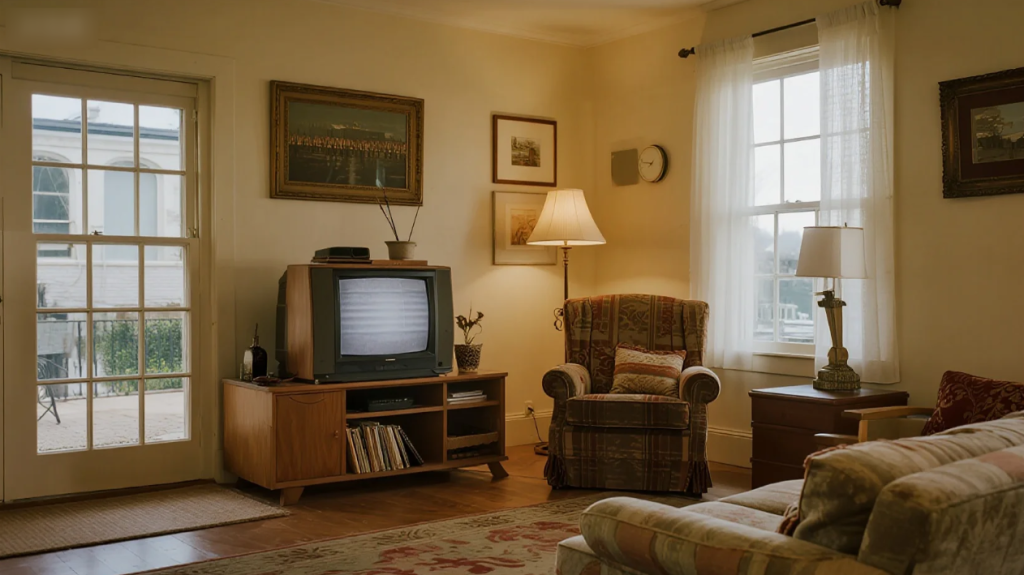Is It Bad Feng Shui to Place a TV in Front of a Window?
In Feng Shui, how we position furniture deeply affects the energy—or chi—that flows through our home. A common dilemma many face is placing a TV in front of a window, especially in small apartments. But is it truly bad Feng Shui?

The short answer: It depends. A window is a vital portal for natural light and energy flow. Blocking it with a TV might interfere with this balance. However, there are ways to work around this setup without disrupting your home’s harmony.
Understanding the Energy Flow Behind the Window
Windows serve as the eyes of a house. They allow yang energy—like sunlight and fresh air—to enter, which keeps a space alive and vibrant. A television, on the other hand, is reflective, electronic, and often considered a yin object due to its passive and absorbing nature.
When you place a TV in front of a window Feng Shui-wise, you might weaken that dynamic exchange. It can lead to energy stagnation or imbalance, especially if the TV is large and the window is your main light source.
However, this isn’t always a disaster. With a few smart tricks, you can still create a balanced, calming environment.
Common Reasons People Place a TV in Front of a Window
Let’s be honest—sometimes, space constraints leave us with few options. A small living room, limited wall space, or oddly shaped layouts often force us to place the TV in front of the window.
Some homeowners prefer it because it avoids glare or allows better seating arrangements. But in Feng Shui, function alone doesn’t justify disrupting natural energy sources.
A client of mine once did this unknowingly. They had trouble sleeping and felt constantly tired. After they repositioned their TV away from the window, they reported feeling more energetic within days.
What Are the Negative Effects of This Setup?
Blocking a window with a television can cause several subtle disturbances in the home’s energy:
- Reduced light leads to dull spaces and low mood
- Chi stagnation builds up around the screen and corners
- Reflective screens might bounce energy back out the window
- Interrupted view may create subconscious tension or restlessness
Interestingly, a TV in front of window Feng Shui concerns are stronger when the window faces a vibrant direction—like South (fame, passion) or East (family, health). Blocking energy here can ripple into different areas of life.
How to Fix or Improve the Setup If You Can’t Move the TV
Sometimes, you just can’t shift the layout—and that’s okay. Feng Shui isn’t rigid. It’s adaptable. Here are a few practical solutions:
- Leave space between the TV and the window. Even a few inches helps chi circulate behind the screen.
- Use sheer curtains. These soften light without fully blocking it and prevent harsh reflections on the screen.
- Add plants nearby. A small potted plant on either side of the TV grounds the area and reactivates flow.
- Incorporate light-enhancing elements. Mirrors, metallic accents, or crystal spheres can redirect energy around the block.
- Clear clutter around the setup. A clean space promotes healthy circulation, even in awkward arrangements.
When a TV in Front of Window Might Actually Work
Here’s something counterintuitive: in some cases, placing a TV here can help. For example, if the window faces an unpleasant view—like a brick wall or busy street—the TV can act as a shield. In Feng Shui, what you see outside impacts the quality of chi that enters.
In such cases, the TV isn’t blocking positive energy—it’s protecting your home from negative influence. It becomes a buffer rather than a barrier.
Another exception: if your window is extremely large and causes excessive glare or heat, placing a TV in front might reduce overstimulation, especially in a bedroom or rest zone.
Real-World Example: Balancing Energy Without Rearranging
A couple in San Francisco had no choice but to place their TV in front of window Feng Shui style. Instead of stressing, they embraced the setup. They added sheer white curtains, flanked the screen with bamboo plants, and hung a small crystal near the top of the window frame.
They reported improved relaxation, better sleep, and even smoother conversations during family movie nights. This shows it’s not always about where things are—but how you work with what you have.
What Directions Matter Most for This Setup?
The impact of a TV in front of window Feng Shui depends heavily on the window’s compass direction.
- North-facing window: Blocks career energy; use water elements to restore balance
- East-facing window: Affects health and family; pair with wooden decor to heal the area
- South-facing window: Disrupts recognition and passion; fire tones can counter the dulling effect
- West-facing window: Impacts creativity and children; introduce soft metal accents
Each direction carries different energy, and understanding this helps you correct imbalances with targeted adjustments.
Don’t Forget the Screen’s Reflective Nature
A TV screen is like a mirror. It reflects whatever is in front of it. In Feng Shui, mirrors can double energy—but also bounce it away. If your screen reflects clutter, sharp edges, or chaotic images, that’s not good.
Instead, make sure the reflection is calming. You might adjust seating or décor so that the screen reflects soft light, calm space, or pleasant imagery.
This one tweak can change the whole energy of the room.
Final Thoughts: Practical Feng Shui Without Perfection
In the end, TV in front of window Feng Shui isn’t about rigid rules—it’s about energy flow and intention. If you must place your television this way, do it with awareness. Balance the energy with light, space, and harmony.
Remember, Feng Shui is less about aesthetics and more about how your environment makes you feel. If your setup feels off, trust your instincts—and make small, thoughtful changes.
Even in a small space, energy can thrive if you treat it with respect.
